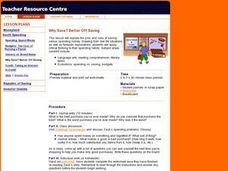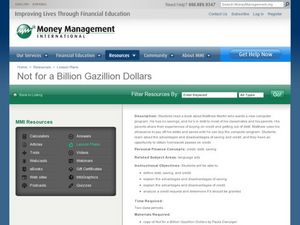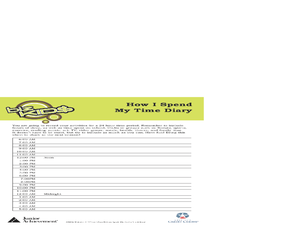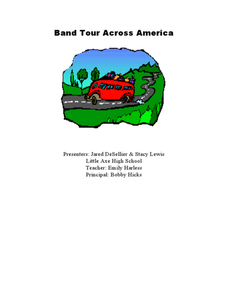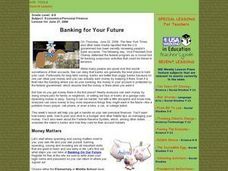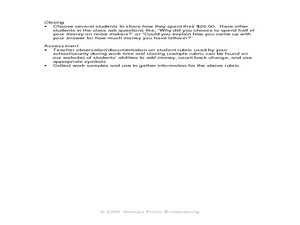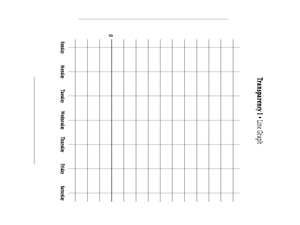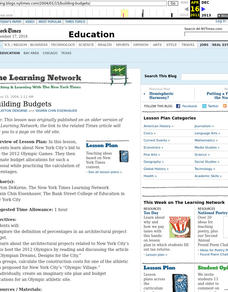Curated OER
Scarcity and Choice
After reading the book A Bargain for Frances, young economists discuss how money is exchanged for goods or services. They demonstrate effective financial decision-making by listing ways to save money for a product they would like to buy.
Curated OER
Party Time
Students design a budget to plan for a class party. In this problem solving lesson, students devise a budget with a limit of fifty dollars for a class party. Students discuss and estimate the amount of money needed for food and decorations.
Curated OER
Why Save? Better Off Saving
Students examine the pros and cons of saving versus spending money and evaluate real-life situations as well as their own spending habits. They discuss the best and worst purchase they have made and why, explore the "Downtown...
Curated OER
Not for a Billion Gazillion Dollars
Students discover what debt, saving, and credit are. In this personal finance lesson, the teacher reads Not for a Billion Gazillion Dollars, and the students discuss what the main character does in the book in relation to debt,...
Curated OER
How to Achieve Your Financial Goals
Students explore economics by creating a budget. In this financial goal setting lesson, students investigate their use of time by completing a worksheet. Students identify financial goals they would like to achieve in the next several...
Curated OER
Simple Strategies
Here is a fabulous lesson plan on problem solving strategies for your charges. In it, learners are presented with many excellent techniques they can use when faced with a multi-step math word problem. Some terrific blackline masters are...
Curated OER
Band Tour Across America
Young scholars plan the trip of a band across America. In this money planning lesson, students create a budget for the band using excel basic functions. They manage the band and its budget and relate the tour to future budgeting needs of...
Curated OER
Banking for Your Future
Learners get a handle on their own personal finances. They discover how banks work, how to plan and stick to a budget, and other helpful tips on managing money. They study the Federal Reserve System, which oversees the nation's banks.
Curated OER
Shopping for a Party
Second graders produce a budget for a party. In this money management lesson plan, 2nd graders create a budget for an imaginary party they will have based on a $20.00 limit. Students observe a video clip in class discussing...
Curated OER
Family Finances
Students examine the dynamics of family finances. In groups, they discuss the importance of a budget and create their own given a fictional amount of money. As a class, they listen to a speaker from the bank discussing the importance of...
Curated OER
Savings Accounts and Interest
First graders study money, banks, and getting interest on money. In this consumer math lesson, 1st graders listen to Stan and Jan Berenstain's, Berenstain Bears' Trouble With Money. They use the concepts in the book to discuss...
Curated OER
Less Than Zero
Students keep track of money. In this money management lesson, students read Less Than Zero by Stuart J. Murphy and manipulate a number line to keep track of spending and borrowing in the story.
Curated OER
Money, Money, Honey Bunny!
Learners determine the differences between goods and services, and saving and spending. In this economics lesson, students listen to a rhyming story about a bunny with money. They play a matching game with the associated cards and work...
DiscoverE
Build a Bridge
Cost overruns are unacceptable—in the real world and in an engaging activity. Groups of pupils get together to build a bridge out of straws, paper cups, and tape. They keep track of costs ($1,000 for each material) and must stay within a...
Visa
Allowances and Spending Plans
Help youngsters understand how to manage small amounts of money by discussing an allowance and the difference between spending, saving, and giving.
Learning to Give
Five Thousand Dollars!
How does consumerism affect global poverty? Upper graders find out about cost benefit, wants and needs, and making good consumer choices as they explore this global topic. They role-play an impulse spending experience and work through...
Workforce Solutions
Reality Check
Scholars complete the Reality Chech handout that identifies their potential salary given a specific profession. Pupils examine the lifestyle options and choose what they wish to have; however, each item costs money and, depending on how...
Curated OER
Money and health
Students write a proposal with an appropriate budget to establish a health day at school. They design this day to educate and promote good health. They educate other students about health care, inform students of health concerns, and...
Curated OER
The Hundred Penny Box
Students compare how people save money in financial institutions, after reading the story, The Hundred Penny Box. They analyze the advantages of regular saving and how savings grow with compounding.
Curated OER
The Fairfax County Budget -- A Look At Spending
Students brainstorm a list of items that should be a priority for the government to help its citizens. Using an out of date budget, they identify individual line items and the conflicts involved in making a budget work. They discuss...
Curated OER
Budget: Don't Go Broke (NEFE)
Students examine how to plan and maintain a balanced budget. In this financial literacy lesson, teacher students follow the PowerPoint and answer questions based on learned information in order to understand where their money goes and...
EngageNY
Ratios of Fractions and Their Unit Rates 2
Remodeling projects require more than just a good design — they involve complex fractions, too. To determine whether a tiling project will fit within a given budget pupils calculate the square footage to determine the number of...
Curated OER
Building Budgets
Students explore New York City's bid to host the 2012 Olympic Games. They estimate budget allocations for such a proposal while practicing the calculation of percentages.
Curated OER
The Hundred Penny Box
Students analyze the advantages of regular saving and how savings grow with compounding. After reading the story "The Hundred Penny Box", students define the terms "interest," "interest rate," and "compounding." Through several...




